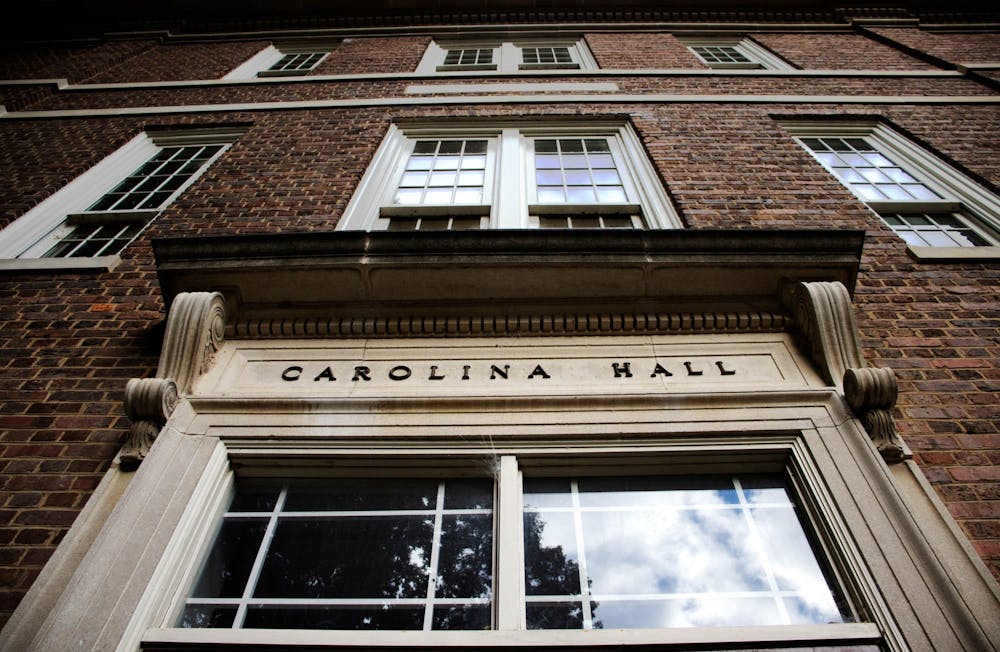Tuesdays and Thursdays, I teach a class as a TA in Carolina Hall, formerly named Saunders Hall — after William L. Saunders, a leader of the Ku Klux Klan.
The fact that the name was changed in 2015 is something current students and I would not necessarily take note of, as it was before our time at the University.
The decision to rename it came in response to Saunders' role as a leader of the Ku Klux Klan and was conceived as a package deal that froze renaming around campus for 16 years. Last year, amid the national conversation on the removal of Confederate monuments, this moratorium was lifted. Although this decision has caused some renaming to occur across campus, it should continue to be a top priority of the University.
The University is no stranger to reckoning with our country’s past. The Silent Sam controversy acutely revealed the discomfort around remembering the Civil War and slavery on our very own campus. Everything that’s happened since the statue’s removal and the renaming of Carolina Hall demonstrates we’ve only just begun the process of understanding the history surrounding us every day.
Sarah Carrier graduated from UNC in 2001 and currently works as the North Carolina research and instruction librarian at Wilson Library. She believes that these buildings should be thought of as monuments. Carrier has been working at Wilson since 2015 and has studied extensively the parts of the University’s history that these building names represent.
“If you’re naming a building after a Confederate officer, you’re telling us what you value,” Carrier said. “You’re embedding those values into our landscape.”
Reconceptualizing the buildings we teach and take daily classes in as monuments, the University amplifies the importance of making sure they are named in honor of people our community of Tar Heels can be proud of.
This is not to say, however, the University hasn’t taken the initiative to make changes.
With the decision to lift the moratorium came a new naming policy. While it would seem these new rules around naming and renaming on campus show a willingness to address the presence of the University’s racist past, they have also bureaucratized the process, making the ability to make changes incredibly slow.



